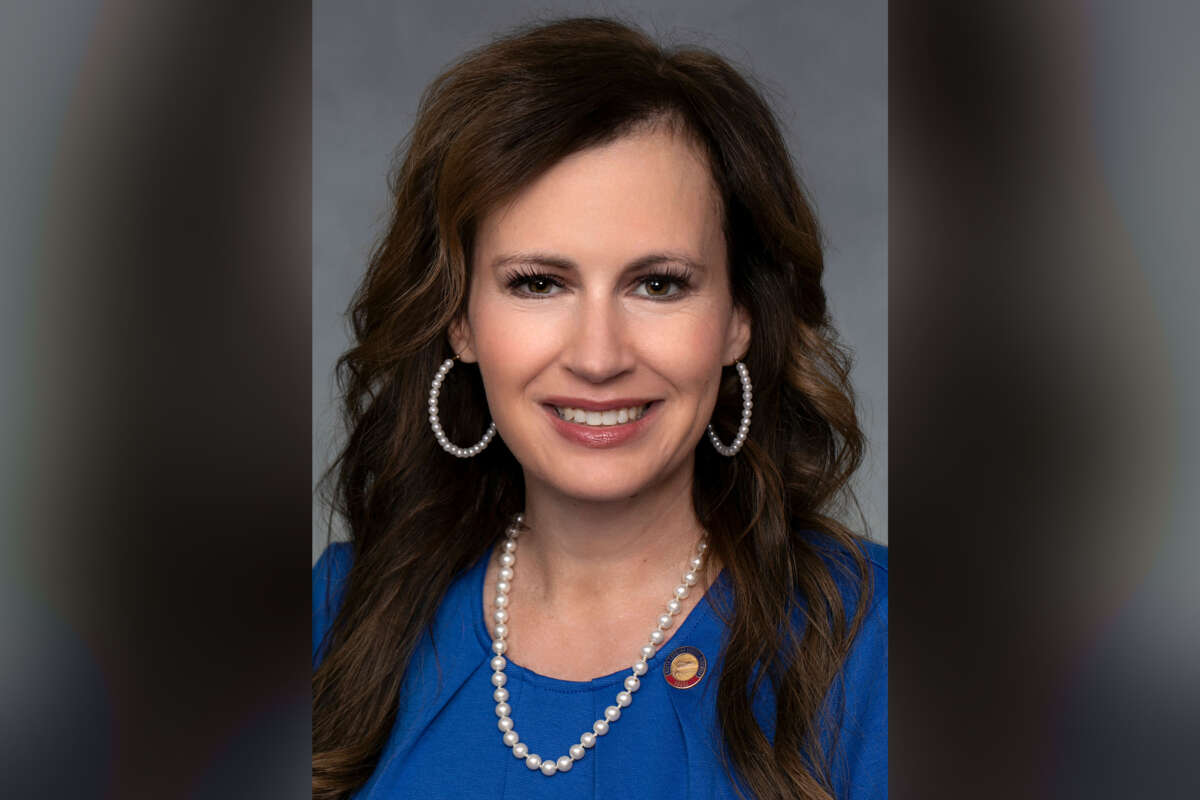A state legislator in North Carolina who switched parties earlier this year will be rewarded for the action, it appears, when Republicans in the state redraw legislative boundaries in such a way that she’ll see a 25-point political swing in her favor in the 2024 elections.
State Rep. Tricia Cotham won her district in 2022 as a Democratic candidate who espoused centrist viewpoints. Her win at the time ensured that Republicans wouldn’t have a veto-proof majority in the state legislature, allowing Democratic Gov. Roy Cooper to have veto authority over far right bills that the party would pass.
However, earlier this year Cotham switched her party affiliation, giving Republicans the ability to override vetoes from Cooper, including for an anti-abortion bill that passed into law in the spring. Cotham has voted along with Republicans on some major legislation ever since then.
Newly redrawn legislative boundaries designed by GOP lawmakers for next year’s elections, introduced last week, will benefit Cotham, who likely wouldn’t have received the same outcome had she remained in office as a Democrat.
Cotham’s home district was won by President Joe Biden over former President Donald Trump by a 23-point margin that got him 61 percent votes to Trump’s 38 percent. But within the new district lines, should Cotham choose to run again, the voting margin in the realigned district would favor Trump – 50 percent to Biden’s 48 percent.
The 25-point changeup means Cotham, who would have faced difficult odds in a Democratic-leaning district as a newly announced Republican, will likely have a competitive matchup, if she decides to run for the state legislative seat again. It will, by no means, be a guaranteed win for her, but Cotham will have a much better chance in next year’s legislative race, compared to what she would have likely faced as a newly minted Republican in her former district, if the maps hadn’t been altered.
To be sure, Republicans haven’t just focused on Cotham’s district — an analysis from Duke University finds that, based on secretly drawn maps that were introduced by the GOP last week, both chambers of the state legislature will likely be won by Republicans again in 2024, based solely on how the voting blocs are redistributed. Although it’s not a certainty, Republicans could continue holding a veto-proof majority in the state legislature, too, based on the limited number of competitive districts that will exist if the maps are passed into law.
North Carolina is considered a “purple state” when it comes to statewide races, but partisan gerrymandering by Republicans has tended to benefit that party when it comes to state and federal legislative races in the Tarheel State.
Republicans haven’t been coy about their goals, when it comes to what they’re trying to do with the new maps.
“Our overarching goal in the creation of this House plan was to create Republican-leaning districts where possible … following traditional redistricting principles,” Rep. Destin Hall (R) recently said.
While Republicans are clear about their partisan objectives when it comes to drawing political boundaries, residents in the state are likely upset by yet another attempt at partisan gerrymandering. Polling in North Carolina has consistently shown that voters by wide margins want a fairer system, to allow for a more representative form of government.
A RepresentUS poll from 2021, for example, found that nearly 9 in 10 voters (89 percent) opposed partisan gerrymandering, with 81 percent in the survey saying they wanted districts to be drawn in a public and transparent way — contradicting the methods that were used to draw the most recent maps, which were done in secret and without public input of any kind.
That same poll found that 75 percent of state residents wanted the process to prohibit lawmakers from drawing districts that benefited a single political party, with 63 percent also saying that public input should be part of the process, to allow voters themselves to approve of the final outcome in some fashion. Only 22 percent of voters in the state, according to the poll, said they trusted state legislators to draw the voting maps on their own.
Join us in defending the truth before it’s too late
The future of independent journalism is uncertain, and the consequences of losing it are too grave to ignore. We have hours left to raise the $12,0000 still needed to ensure Truthout remains safe, strong, and free. Every dollar raised goes directly toward the costs of producing news you can trust.
Please give what you can — because by supporting us with a tax-deductible donation, you’re not just preserving a source of news, you’re helping to safeguard what’s left of our democracy.
